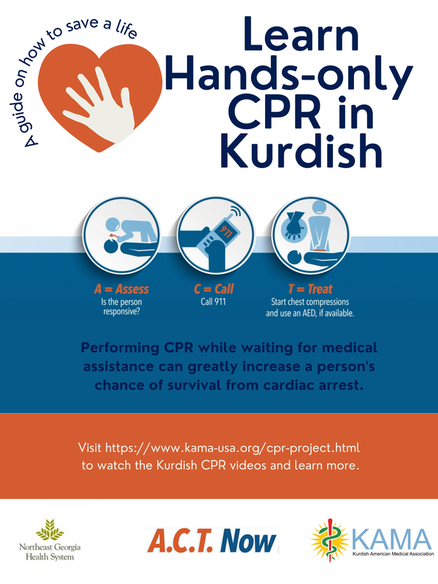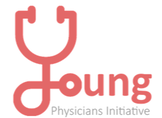Student Testimonials - Courses and Involvement
|
How do I find a Pre-Med Advisor? “If anything, students should seek out a physician that would be willing to mentor and serve as their "pre-medical advisor". Most schools' Pre-Health Offices are not adequately prepared to help students of varying backgrounds and can only provide generalized advice.” How do I get shadowing experience? "Email a bunch of physicians and just ask them if you can shadow. It’s easier to shadow in a clinic than a hospital. Try to find at least 2 different experiences." |

hat advice do you have for scheduling my course load?
Make sure your load is manageable so you can keep your GPA up. Try to have at least one enjoyable class each semester to keep you interested.
How should I handle...
“Focus most of your time here. Meet with professors in office hours!! Necessary for recs later on and helps you find a deeper understanding of the content.”
What is expected of me when shadowing?
When shadowing, observe the role of the doctor as she/he interacts with other healthcare professionals & patients for reference in your personal statement. The question will be ‘Why do you want to be a DOCTOR?’ So you will need to be able to cite specific responsibilities doctors have.”
When should I get involved in community service?
“Get involved as soon as possible even at a simple entry level and make your presence known in the few you take interest in. It’s usually as simple as asking if the org needs any intern or volunteer help. You can easily find community service on your own as well.”
Make sure your load is manageable so you can keep your GPA up. Try to have at least one enjoyable class each semester to keep you interested.
How should I handle...
“Focus most of your time here. Meet with professors in office hours!! Necessary for recs later on and helps you find a deeper understanding of the content.”
What is expected of me when shadowing?
When shadowing, observe the role of the doctor as she/he interacts with other healthcare professionals & patients for reference in your personal statement. The question will be ‘Why do you want to be a DOCTOR?’ So you will need to be able to cite specific responsibilities doctors have.”
When should I get involved in community service?
“Get involved as soon as possible even at a simple entry level and make your presence known in the few you take interest in. It’s usually as simple as asking if the org needs any intern or volunteer help. You can easily find community service on your own as well.”

How do I find opportunities to shadow?
“Ask your family doctor and ask your extended family’s doctor. It is easier to get an opportunity to shadow if there is already a foot in the door somewhere.”
How do I stand out with my extracurriculars?
“Join things that you are interested in, and not just things that look good. ‘Pre-Med club president’ sure looks good, but it’s likely a saturated market. You can gain a lot of personal development from starting a photography, freestyle, or crochet club. It prevents mental breakdowns, trust me.”

What is the importance of shadowing?
“The most important thing is to be able to explain how that shadowing was important for you, not the amount of hours”
Should I be documenting all my activities?
“Be sure to have all your shadowing and volunteering ordered by date and amount of hours, it will save you time when applying”

How do I find shadowing opportunities?
Don’t be afraid to reach out to physicians to ask them for shadowing opportunities. You will soon find that many of them are more than happy to share their experience with you. Networking is a major part of medicine and you should begin connecting with other professionals as a premed to get an idea of what it’s like. You may find yourself sending many emails at first and possibly receiving little to no responses, but don’t let that discourage you. Just remember to be genuine and professional, and don’t be afraid to show some persistence. The same goes for reaching out about research.
How do I get involved in extracurricular activities?
I was heavily involved in community service during undergrad, and I feel that it helped me gain a lot of perspective while also having some time away from the books. The volunteering opportunities I had mainly spanned from student organizations or through my own independent research. Many activities could fall within the range of community service, whether it is volunteering at a free clinic, helping a local church collect food/clothes for marginalized populations, mentoring underserved students, joining a buddy program to give company to elderly adults, the list could go on. Like with any other extracurricular activity, you want to ensure that whatever you volunteer in is something that you are passionate about.
Don’t be afraid to reach out to physicians to ask them for shadowing opportunities. You will soon find that many of them are more than happy to share their experience with you. Networking is a major part of medicine and you should begin connecting with other professionals as a premed to get an idea of what it’s like. You may find yourself sending many emails at first and possibly receiving little to no responses, but don’t let that discourage you. Just remember to be genuine and professional, and don’t be afraid to show some persistence. The same goes for reaching out about research.
How do I get involved in extracurricular activities?
I was heavily involved in community service during undergrad, and I feel that it helped me gain a lot of perspective while also having some time away from the books. The volunteering opportunities I had mainly spanned from student organizations or through my own independent research. Many activities could fall within the range of community service, whether it is volunteering at a free clinic, helping a local church collect food/clothes for marginalized populations, mentoring underserved students, joining a buddy program to give company to elderly adults, the list could go on. Like with any other extracurricular activity, you want to ensure that whatever you volunteer in is something that you are passionate about.

What’s the best way to find Pre-med mentorship?
“Sadly the Pre-Med Advisor at my school was not very helpful to me, and I had to rely on services outside the school. That’s why I believe pipeline and Mentorship programs are so important. The most significant resource I had at the time was a third-year medical student who helped my application tremendously.”
How should I balance my course load?
“I crafted my schedule carefully. I would always choose two challenging classes and then more accessible courses. I was careful to have the right mix between school and life in general. Also, Rate My Professor was incredibly clutch.”
How do I find community service opportunities?
“I joined a premedical fraternity and got most of my community service through them.”
“Sadly the Pre-Med Advisor at my school was not very helpful to me, and I had to rely on services outside the school. That’s why I believe pipeline and Mentorship programs are so important. The most significant resource I had at the time was a third-year medical student who helped my application tremendously.”
How should I balance my course load?
“I crafted my schedule carefully. I would always choose two challenging classes and then more accessible courses. I was careful to have the right mix between school and life in general. Also, Rate My Professor was incredibly clutch.”
How do I find community service opportunities?
“I joined a premedical fraternity and got most of my community service through them.”

How many extracurricular activities should I be involved in?
“Find one or two major extracurricular activities and stick to those. You have to like what you do, and find it easy to get excited about that work.”

What does advising offer?
“Meeting with your advisor at least every year would be good. I went every semester to double check that when selecting courses, I was still on track to graduate on time and that I was taking electives that would help me in medical school. They also did tell me about resources my University had that I didn't know about or didn't even think to look for at my school like MCAT prep books we could check out or mock interviews.”
How should I balance my course load?
“I would always make sure my schedule had a balance of hard and easy classes. The number one thing is your gpa so it's important that you take on only what you can handle. An advisor or someone else may say that you won't be able to handle the load you're taking on or they may say that the load you're taking is too little. Only you know how much you can handle so trust your instincts. When I was making my schedules I would always ask people about how they felt about the class and professor. I would also check rate my professor to gauge how the professor teaches and if it fits my learning style. One thing to keep in mind when asking others about a class is that not all of us are the same. Some of us excel in certain classes with certain professors while some can barely hang on. So be careful when asking for others' opinions about a class.”
How do I gain shadowing/clinical experience?
“Some hospitals have shadowing programs that you can look for. For me it was pretty difficult to find a physician willing to let me shadow. They tend to not answer phone calls or emails. Eventually, one did answer and it only takes one yes to lead you to even more shadowing opportunities with different physicians! If all else fails, I know some people start scribing and I believe that may count for shadowing (I would double check that though). Also if you have any connections to physicians, nurses, or anyone who works in a hospital setting, don't be shy to ask for their help in getting into a hospital to shadow!”
How did you get involved in your community?
“I volunteered at a local health clinic for people without health insurance and I did a mission trip in India in a village close to where my family is from. Working in underserved areas gave me a new perspective and when I was feeling unmotivated, going to these places to volunteer reminded me why I wanted to do this. I think volunteering with the underserved population is the best thing you could do because you will see things that you will not in a hospital in the suburbs. You don't need to go on a mission trip to see all of that, but going on one will be an amazing learning experience.
As for clubs, I joined the Pre-Professional Medical Society and Best Buddies. Clubs are a great way to form a group of like-minded friends who can help motivate one another and some clubs have great opportunities for volunteering. The ones I was a part of had guest speakers who were from different health professions and I thought those talks were great ways to learn more about specialties I didn't get the chance to shadow with.
It's not about the number of clubs you join or how many places you volunteer at. It's about what you gained from these experiences and how they will make you a better physician.”
“Meeting with your advisor at least every year would be good. I went every semester to double check that when selecting courses, I was still on track to graduate on time and that I was taking electives that would help me in medical school. They also did tell me about resources my University had that I didn't know about or didn't even think to look for at my school like MCAT prep books we could check out or mock interviews.”
How should I balance my course load?
“I would always make sure my schedule had a balance of hard and easy classes. The number one thing is your gpa so it's important that you take on only what you can handle. An advisor or someone else may say that you won't be able to handle the load you're taking on or they may say that the load you're taking is too little. Only you know how much you can handle so trust your instincts. When I was making my schedules I would always ask people about how they felt about the class and professor. I would also check rate my professor to gauge how the professor teaches and if it fits my learning style. One thing to keep in mind when asking others about a class is that not all of us are the same. Some of us excel in certain classes with certain professors while some can barely hang on. So be careful when asking for others' opinions about a class.”
How do I gain shadowing/clinical experience?
“Some hospitals have shadowing programs that you can look for. For me it was pretty difficult to find a physician willing to let me shadow. They tend to not answer phone calls or emails. Eventually, one did answer and it only takes one yes to lead you to even more shadowing opportunities with different physicians! If all else fails, I know some people start scribing and I believe that may count for shadowing (I would double check that though). Also if you have any connections to physicians, nurses, or anyone who works in a hospital setting, don't be shy to ask for their help in getting into a hospital to shadow!”
How did you get involved in your community?
“I volunteered at a local health clinic for people without health insurance and I did a mission trip in India in a village close to where my family is from. Working in underserved areas gave me a new perspective and when I was feeling unmotivated, going to these places to volunteer reminded me why I wanted to do this. I think volunteering with the underserved population is the best thing you could do because you will see things that you will not in a hospital in the suburbs. You don't need to go on a mission trip to see all of that, but going on one will be an amazing learning experience.
As for clubs, I joined the Pre-Professional Medical Society and Best Buddies. Clubs are a great way to form a group of like-minded friends who can help motivate one another and some clubs have great opportunities for volunteering. The ones I was a part of had guest speakers who were from different health professions and I thought those talks were great ways to learn more about specialties I didn't get the chance to shadow with.
It's not about the number of clubs you join or how many places you volunteer at. It's about what you gained from these experiences and how they will make you a better physician.”

